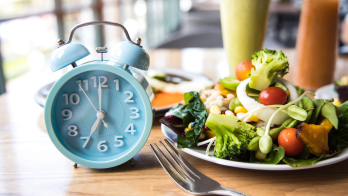The best recovery snacks for vegan runners according to dietitians
Whether you’re a seasoned marathoner or a running newbie, the right post-workout food can accelerate recovery, and help you get more out of every training session. However, some foods are better than others, especially if you follow a vegan diet. Here are the best recovery snacks for vegan runners, according to dietitians.
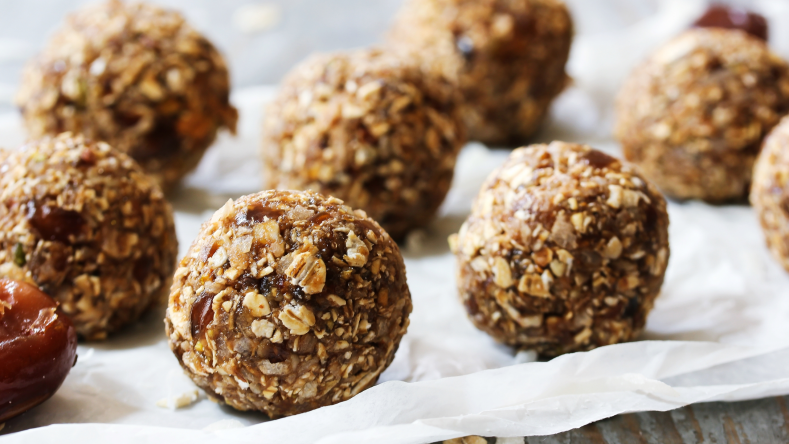
As a runner, your training session doesn’t end the moment your shoes come off; it also extends to your post-workout nutrition plan. Eating a combination of carbs and protein immediately after a run can help you replenish fuel stores, build muscle, and leave you feeling more refreshed for your next session.
While post-run recovery nutrition guidelines apply to all runners, those who follow a vegan diet need to pay close attention to the types of nutrients they consume, as their needs differ slightly from their omnivore diet counterparts.
Before discussing the best post-workout nutrition options for vegan runners, let’s dive into the importance of refueling after a run.
Why refueling is important
During a run numerous physiological changes take place including:
Loss of fluid and electrolytes
Fuel store depletion
Increase in body temperature
Immune system suppression
Muscle damage
The right nutrition after a workout can help restore homeostasis and reap the benefits of those hard-earned miles. Conversely, the wrong food choices post-workout can increase fatigue, hinder your body’s recovery, and decrease performance the next time you exercise.
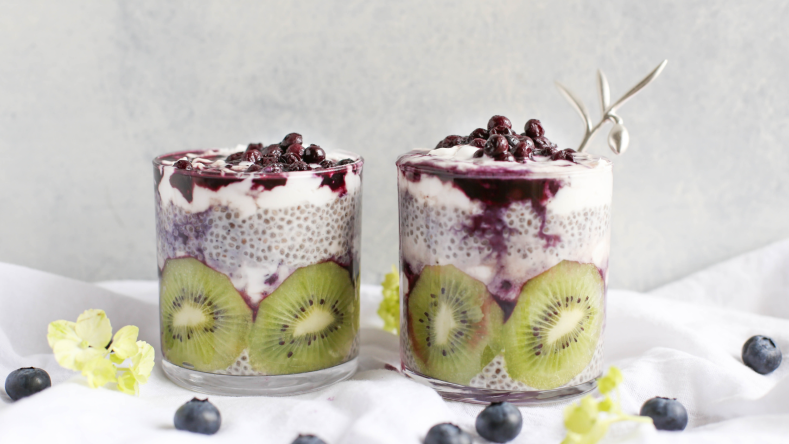
What foods are best to eat post run?
So, what should you be noshing on after a run to accelerate recovery? Post-workout nutrition is all about carbs, protein, and fluid.
Studies show that to replenish glycogen stores and maximize muscle protein synthesis, you should consume a 3:1 carb-to-protein ratio within 30-to-60-minutes after a workout [2].
Morgyn Clair, a Registered Dietitian nutritionist for Sprint Kitchen, says that to properly refuel after a workout, you should “eat something with at least 30 g carbs, along with at least 15 g of protein to support muscle strength.”
But not all carbs and protein sources are created equal. Quick-absorbing carbohydrates such as white bread, white rice, instant oats and sports drinks are actually preferable post-workout because they are easily digested and rapidly replete fuel stores. For protein, leucine-rich protein sources (such as soy yogurt, soy milk, tofu, lentils, and some multi-sourced plant protein powders) seem to be advantageous for stimulating muscle protein synthesis after exercise [6].
In addition to carbs and protein, you also need to replace fluid and possibly electrolytes due to sweat losses. This can come in the form of water, smoothies, fruit juices, coconut water, or electrolyte beverages (such as sports drinks or infused water).
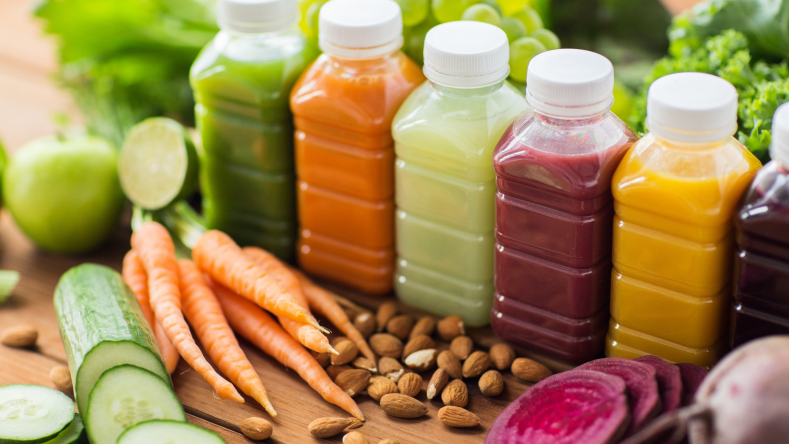
When you eat matters
If you finish a run and you’re not hungry, does this mean you can skip your refuel snack? Studies show that delaying carbohydrate consumption by two hours or more will cause glycogen synthesis to be reduced by 50% [1]. Since muscles are most responsive to nutrient intake 30 minutes post-exercise, research states that eating 30 to 60 minutes after your run will help replenish glycogen stores and kickstart muscle recovery [2].
You can also maximize muscle protein synthesis and enhance recovery by consuming roughly 15 to 25 g protein up to two hours after exercise, then have 0.14 g/lb every three to five hours over multiple meals [3]. You can also replenish muscle glycogen by consuming 1.5 g of high-glycemic carbohydrates/kg immediately after exercise or have 0.6 to 1 g of high-glycemic carbohydrates/kg every two hours for four to six hours [1].
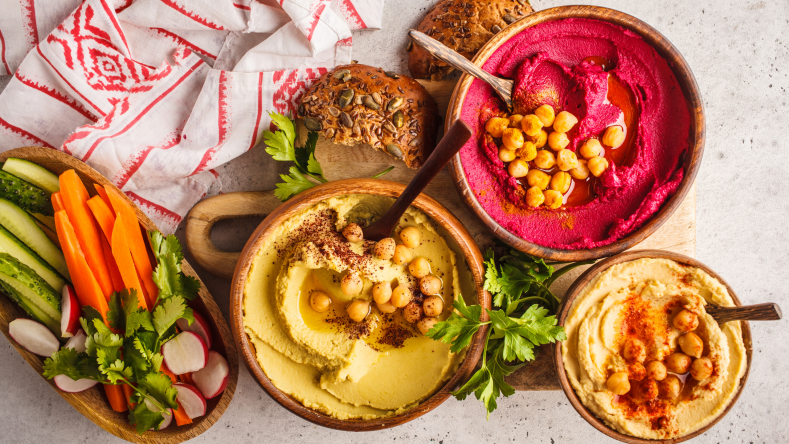
Refueling for vegan runners
Vegan diets tend to be lower in calories, protein, fat, and nutrients such as vitamin B12, calcium and iodine, and post-workout snacks/ meals are also an opportunity for vegans to bump up their intake of these nutrients, and promote long term health [4].
Sharon Palmer, MSFS, RDN recommends some combination of complex carbs, protein, and fat as post-run fuel. As a vegan herself, Palmer states that having a well-rounded nutritional snack provides “antioxidant compounds from fruits, vegetables, whole grains, pulses to reduce inflammation and enhance recovery.” Palmer recommends foods such as “trail mix, whole fruit with nut butter, whole food bars like CLIF, and hummus with whole grain flatbread.” According to her, these snack options are “easy, nutritious, and reliable.
The best recovery snacks for vegan runners
We asked a few dietitians for their recommendations on the best recovery snacks for vegan runners. From energy bites to smoothies to oatmeal, there is something here to satisfy anyone’s palate.
Soy yogurt + banana. According to Clair, a combination of protein and carbohydrates “provides energy replacement plus adequate muscle building nutrients.” That’s why she recommends eating soy yogurt with ½ of a banana for a recovery snack. It’s the perfect mix of nutrition and taste to power your post-run recovery plan!
Chia seed pudding with fruit. Dietitian Holly Klamer raves about this snack choice because she says that it “offers protein, magnesium for fluid balance, iron for red blood cells and fruit can add a carbohydrate source to refuel muscles.” Plus, it’s easy to whip up the night before and leave it in your fridge for convenient post-run fuel. Just use your favorite plant-based milk and you’re good to go!
Vegan tuna salad. According to Registered Dietitian, Environmental Health Specialist, and Adjunct Nutrition Professor Trista Best, “vegan tuna salad makes a great option for a low fat and high protein option for vegan dieters needing to recover from a workout. The protein and fiber in this recipe will keep you feeling full for longer, which will help prevent overeating.”
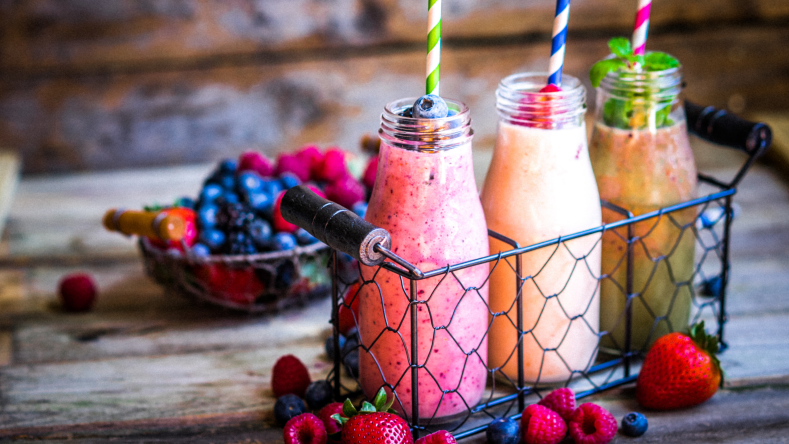
Smoothie with vegan protein powder. Smoothies are an easy, healthful option that can pack a powerful nutrition punch. According to Klamer, the correct food combination in a smoothie “offers protein and carbohydrates to rebuild muscles, as well as antioxidants from fruit (and green leafy veggies) to lower inflammation.” So, the next time you’re whizzing up a smoothie, try adding some plant-based milk, fresh or frozen berries, leafy greens, and vegan protein powder for a power-packed post-run snack.
Oatmeal energy bites. Snacks don’t have to be complicated. For a convenient post-run option, Lexi Endicott, RD, LD, CCMS of To Taste says that “oatmeal energy bites are a great recovery snack for vegan runners! They're packed with carbohydrates to promote glycogen repletion, plus the little bit of nut butter provides protein for muscle recovery. Plus, they're super easy to make, customizable, and convenient to pack!” She also enjoys making her own spin on these bites with the addition of superfoods. According to Endicott, she adds �“a dash of turmeric and black pepper to reduce inflammation, a splash of lemon or orange juice for collagen building, and dried cherries or blueberries for an antioxidant boost.”
Veggie hash. Switch things up a bit and try out a veggie hash this week. This recipe is great for vegan runners, as Klamer says that it “offers carbohydrates and protein to rebuild muscles, antioxidants to lower inflammation as well as providing many vitamins and minerals.” To make this yourself, all you need to do is combine sweet potatoes, beans, tofu, and veggies into a skillet, sauté until soft, and you have a post-run recovery snack that will fuel your muscles and keep you full till the next meal.
Summary
The types of food you eat, as well as when you choose to eat them, play an important role in your post-run recovery. Eating a combination of protein, carbohydrates, fluids, and electrolytes, 30 to 60 minutes after a run is crucial for restoring electrolyte and fluid balance, repleting glycogen, building muscle and accelerating recovery. While this applies to all runners, vegan athletes have a few extra things to consider, especially related to protein intake. Items such as beans, tofu, soy milk, protein powder, nuts, and seeds can help vegan runners meet protein needs post-run. With careful planning, eating vegan can be just as good as non-plant-based diets for running performance.
Disclaimer: The text, images, videos, and other media on this page are provided for informational purposes only and are not intended to treat, diagnose or replace personalized medical care.
Key takeaways
Consuming a combination carbohydrate, protein, fluid and electrolytes 30-60 minutes after a run can help accelerate recovery and build muscle.
Proper refueling will help your body increase muscle protein synthesis, which is necessary for ongoing growth, repair, and maintenance of skeletal muscle groups [5].
Protein is a particularly important consideration for vegans after a run. High quality protein sources include tofu, beans, lentils, almonds, and quinoa.
To replenish glycogen stores and maximize muscle protein synthesis, aim to consume a 3:1 carb-to-protein ratio within 30-to-60-minutes after a workout [2].
As a vegan runner, you can still get quality carbohydrates and adequate protein to fuel your body’s recovery.
References
Murray, B., Rosenbloom, C. (2018). Fundamentals of glycogen metabolism for coaches and athletes. Nutrition Reviews, 76(4), 243–259. https://doi.org/10.1093/nutrit/nuy001
Kerksick, C., Harvey, T., Stout, J., Campbell, B., Wilborn, C., Kreider, R., Kalman, D., Ziegenfuss, T., Lopez, H., Landis, J., Ivy, J. L., & Antonio, J. (2008). Erratum to: International Society of Sports Nutrition position stand: Nutrient timing. Journal of the International Society of Sports Nutrition, 5(1). https://doi.org/10.1186/1550-2783-5-18
Thomas, T., Burke, L. M., & Erdman, K. A. (2016). Nutrition and Athletic Performance. Medicine & Science in Sports & Exercise, 48(3), 543–568. https://doi.org/10.1249/mss.0000000000000852
Rogerson, D. (2017). Vegan diets: practical advice for athletes and exercisers. Journal of the International Society of Sports Nutrition, 14(1). https://doi.org/10.1186/s12970-017-0192-9
Slater, G. J., Dieter, B. P., Marsh, D. J., Helms, E. R., Shaw, G., & Iraki, J. (2019). Is an Energy Surplus Required to Maximize Skeletal Muscle Hypertrophy Associated With Resistance Training. Frontiers in Nutrition, 6. https://doi.org/10.3389/fnut.2019.00131
Lynch, H. M., Buman, M. P., Dickinson, J. M., Ransdell, L. B., Johnston, C. S., & Wharton, C. M. (2020). No Significant Differences in Muscle Growth and Strength Development When Consuming Soy and Whey Protein Supplements Matched for Leucine Following a 12 Week Resistance Training Program in Men and Women: A Randomized Trial. International journal of environmental research and public health, 17(11), 3871. https://doi.org/10.3390/ijerph17113871

